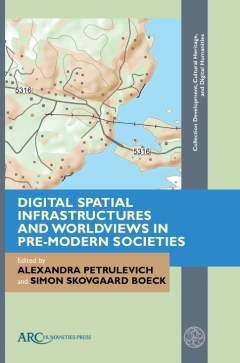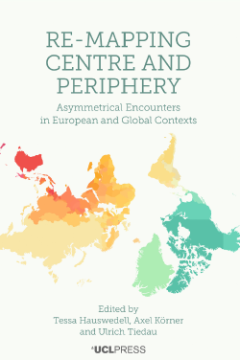Ditapis dengan

East European History : An Ethnic Approach
- Edisi
- -
- ISBN/ISSN
- -
- Deskripsi Fisik
- 35 p.: ill.; 22,8 cm.
- Judul Seri
- -
- No. Panggil
- 940 Bur e
- Edisi
- -
- ISBN/ISSN
- -
- Deskripsi Fisik
- 35 p.: ill.; 22,8 cm.
- Judul Seri
- -
- No. Panggil
- 940 Bur e

From the Tigris to the Tiber : An Introduction to Ancient History
- Edisi
- -
- ISBN/ISSN
- 0-256-02854-0
- Deskripsi Fisik
- xii, 369 hlm.: ilus.; 22,8 cm.
- Judul Seri
- -
- No. Panggil
- 930 Jon f
- Edisi
- -
- ISBN/ISSN
- 0-256-02854-0
- Deskripsi Fisik
- xii, 369 hlm.: ilus.; 22,8 cm.
- Judul Seri
- -
- No. Panggil
- 930 Jon f

The Making of the Modern World : 1815-1914 Volume V
- Edisi
- -
- ISBN/ISSN
- -
- Deskripsi Fisik
- vii, 232 hlm.; 20,5 cm.
- Judul Seri
- -
- No. Panggil
- 940.28 Can m
- Edisi
- -
- ISBN/ISSN
- -
- Deskripsi Fisik
- vii, 232 hlm.; 20,5 cm.
- Judul Seri
- -
- No. Panggil
- 940.28 Can m

The Making of The Modern World : 1815-1914
- Edisi
- 1
- ISBN/ISSN
- -
- Deskripsi Fisik
- vii, 232p.; 21 cm.
- Judul Seri
- -
- No. Panggil
- 940.28 Mak
- Edisi
- 1
- ISBN/ISSN
- -
- Deskripsi Fisik
- vii, 232p.; 21 cm.
- Judul Seri
- -
- No. Panggil
- 940.28 Mak

Digital Spatial Infrastructures and Worldviews in Pre-Modern Societies
The study of medieval and early modern geographic space, literary cartography, and spatial thinking at a time of rapid digitization in the Humanities offers new ways to investigate spatial knowledge and world perceptions in pre-modern societies. Digitization of cultural heritage collections, open source databases, and interactive resources utilizing a rich variety of source materials—place na…
- Edisi
- -
- ISBN/ISSN
- 978-1802700794
- Deskripsi Fisik
- 312 hlm.
- Judul Seri
- -
- No. Panggil
- 526 Pet d

Re-Mapping Centre and Periphery: Asymmetrical Encounters in European and Glob…
Historians often assume a one-directional transmission of knowledge and ideas, leading to the establishment of spatial hierarchies defined as centres and peripheries. In recent decades, transnational and global history have contributed to a more inclusive understanding of intellectual and cultural exchanges that profoundly challenged the ways in which we draw our mental maps. Covering the early…
- Edisi
- -
- ISBN/ISSN
- 978–1-78735–099-1
- Deskripsi Fisik
- 211 hlm.
- Judul Seri
- -
- No. Panggil
- 526 Hau r
 Karya Umum
Karya Umum  Filsafat
Filsafat  Agama
Agama  Ilmu-ilmu Sosial
Ilmu-ilmu Sosial  Bahasa
Bahasa  Ilmu-ilmu Murni
Ilmu-ilmu Murni  Ilmu-ilmu Terapan
Ilmu-ilmu Terapan  Kesenian, Hiburan, dan Olahraga
Kesenian, Hiburan, dan Olahraga  Kesusastraan
Kesusastraan  Geografi dan Sejarah
Geografi dan Sejarah